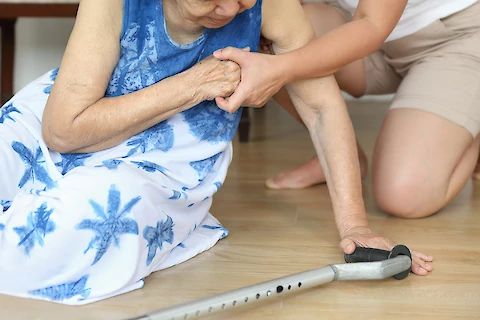
Falls are an unfortunate but common occurrence among seniors, often leading to serious injuries and long-term complications. When a fall happens, it's essential to know exactly what to do, and perhaps more importantly, what not to do. You need to know how to help get senior loved ones back on their feet and provide them with the support they need to maintain a high quality of life, even if they end up injured.
Understanding the Risks of Falls for Seniors
Seniors are more susceptible to falls due to aging-related changes in strength, balance, and overall health. A fall can result in serious injuries, including fractures and head trauma. Often, for seniors, those injuries are debilitating. Some seniors may suffer permanent disability or even death as a result of a fall. Consequently, taking measures to prevent falls and knowing how to respond if one occurs is crucial.
Steps to Take Immediately After a Fall
Following a fall, the immediate response is crucial.
Assessing Your Loved One's Condition
First, assess the situation calmly. Check the senior for injuries, from minor bruises to major fractures. Pay attention to signs of confusion, disorientation, or dizziness.
Getting Your Loved One Off the Floor
If the senior can't get up by themselves, avoid lifting them from the floor, as you might cause more harm. Instead, call for medical assistance. You may want to consider options like offering a chair for your loved one to use to get up, since that may be more practical than trying to assist them yourself.
Call for Help If Needed
Dialing 911 is a priority in severe cases. If the fall seems less serious, reach out to a healthcare professional for guidance and notify other family members.
Developing a Comprehensive Action Plan
A comprehensive action plan includes not only the steps you need to take immediately after a fall but also the steps you may need to take in the future.
Notifying Family Members
After a serious fall, you may need to notify other family members or loved ones about the event. Your fall response plan should include contact information.
Contacting Care Providers
Even if your loved one does not seem to have serious injuries, you may want to get in touch with care providers and have them in for a check-up. Include those contact numbers in your plan.
Sharing Medical Information
As part of your fall response plan, include a detailed list of your loved one's medical conditions and medications, which can make it easier for you to come up with vital medical information in the event of an emergency.
The Role of Professional Caregivers in Preventing Falls and Post-Fall Care
Having a professional caregiver can be beneficial in preventing falls. They are trained to identify potential fall hazards in the home and can assist in implementing preventative measures. Post-fall, professional caregivers can aid in recovery and offer reassurance, reducing the emotional stress linked with falls. Furthermore, they can make sure that seniors aren't alone and that they receive the support they need to maintain quality of life while dealing with injuries.
Falls in seniors can be a terrifying prospect, but with the right planning and support, it doesn't have to be a crisis. By developing and practicing a thorough action plan, you can ensure your loved one receives the immediate care they need, minimizing the risk of further injury.
Access Trained Caregivers for Seniors in South Shore
For families in Quincy, Braintree, and Randolph, Senior Helpers South Shore, MA, provides compassionate, professional caregivers trained in fall prevention and post-fall care. Contact us to learn more about our home care services and the benefits they can offer your senior loved one.